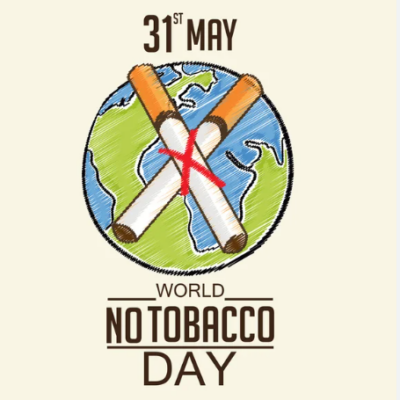Supporting Youth Health: Addressing Tobacco and Cannabis Co-Use on World No Tobacco Day

As we recognize World No Tobacco Day on May 31st, the Community Service Board of Middle Georgia (CSBMG) joins national efforts to raise awareness of the growing health risks tied to adolescent substance use. In response to increasing rates of tobacco and cannabis co-use among youth, the American Academy of Pediatrics (AAP) has released new educational tools aimed at supporting clinicians and community health professionals in early identification and intervention.
A newly published infographic by the AAP outlines key data on youth co-use, the associated health risks, and evidence-based strategies to inform clinical practice. This is paired with a short, informative social media reel designed for professional development and public sharing, providing a clear visual summary of critical findings (American Academy of Pediatrics [AAP], 2025).
Understanding the implications of this trend is vital. Research shows that the co-use of tobacco and cannabis during adolescence significantly increases the risk of developing substance use disorders, experiencing mental health challenges such as depression and anxiety, and suffering long-term physical health consequences. These risks are amplified during the formative years of brain development, underscoring the need for timely education and intervention.
Pediatricians and frontline providers play a pivotal role in youth prevention efforts. By identifying co-use early and engaging in supportive counseling, they can guide young individuals toward healthier paths and connect them with cessation resources. For those seeking tools to strengthen this approach, the AAP provides comprehensive guidance through its Youth Tobacco Cessation Toolkit—available online for free access (AAP, 2025).
📚 Explore the AAP’s full toolkit here: https://www.aap.org/en/patient-care/tobacco-control-and-prevention/youth-tobacco-cessation-toolkits/
At CSBMG, we are committed to promoting youth wellness through prevention, education, and evidence-based behavioral health care. By partnering with national organizations and leveraging trusted clinical resources, we continue to support our region’s youth in leading healthier, substance-free lives.
References
American Academy of Pediatrics. (2025). Youth tobacco cessation toolkits. https://www.aap.org/en/patient-care/tobacco-control-and-prevention/youth-tobacco-cessation-toolkits/
